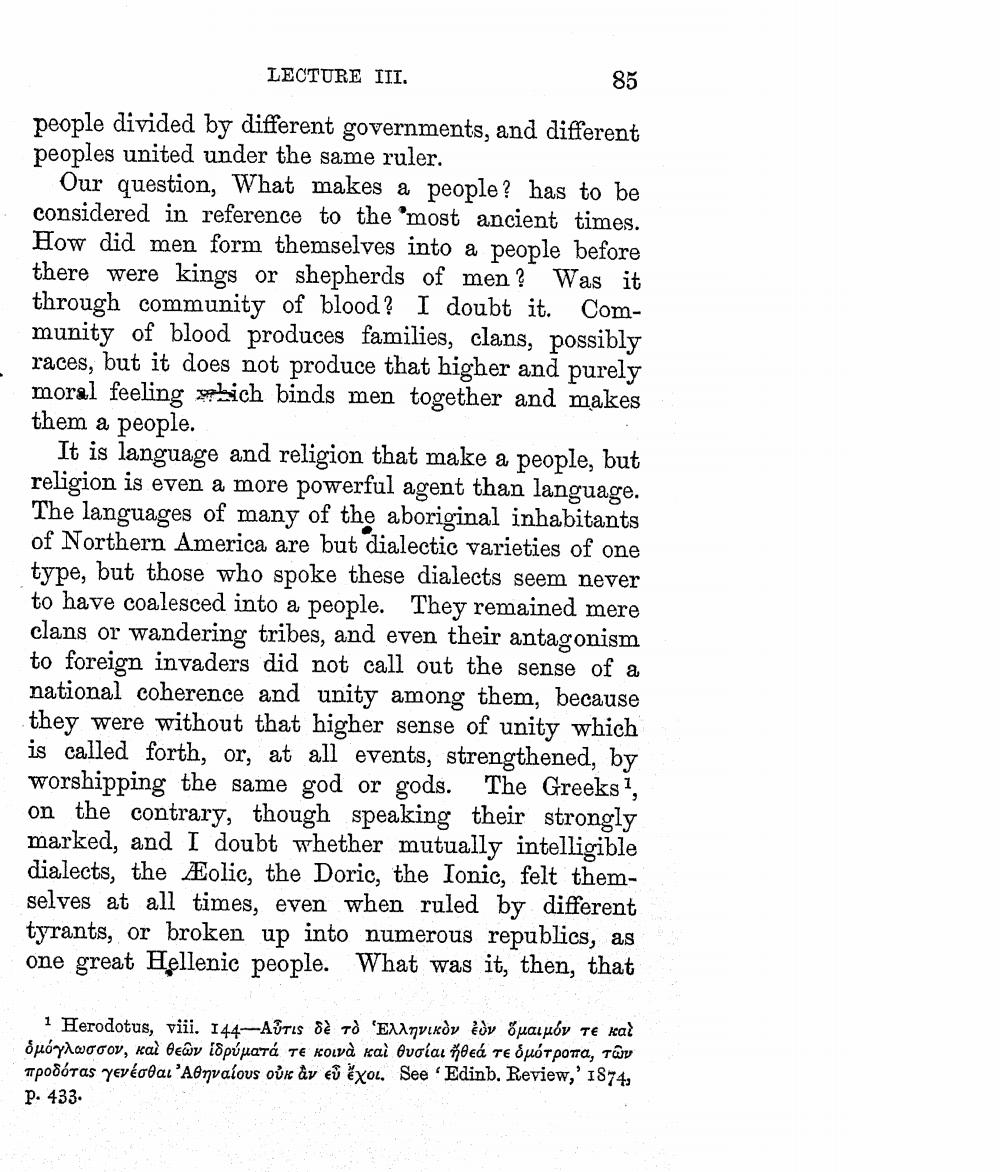________________
LECTURE III.
85
people divided by different governments, and different peoples united under the same ruler.
Our question, What makes a people? has to be considered in reference to the most ancient times. How did men form themselves into a people before there were kings or shepherds of men? Was it through community of blood? I doubt it. Community of blood produces families, clans, possibly races, but it does not produce that higher and purely moral feeling ich binds men together and makes
them a people.
It is language and religion that make a people, but religion is even a more powerful agent than language. The languages of many of the aboriginal inhabitants of Northern America are but dialectic varieties of one type, but those who spoke these dialects seem never to have coalesced into a people. They remained mere clans or wandering tribes, and even their antagonism to foreign invaders did not call out the sense of a national coherence and unity among them, because they were without that higher sense of unity which is called forth, or, at all events, strengthened, by worshipping the same god or gods. The Greeks1, on the contrary, though speaking their strongly marked, and I doubt whether mutually intelligible dialects, the Eolic, the Doric, the Ionic, felt themselves at all times, even when ruled by different tyrants, or broken up into numerous republics, as one great Hellenic people. What was it, then, that
1 Herodotus, viii. 144---Αὖτις δὲ τὸ Ἑλληνικὸν ἐὸν ὅμαιμόν τε καὶ ὁμόγλωσσον, καὶ θεῶν ἱδρύματά τε κοινὰ καὶ θυσίαι ἤθεά τε ὁμότροπα, τῶν προδότας γενέσθαι Αθηναίους οὐκ ἂν εὖ ἔχοι, See ‘Edinb. Review, 1874,
P. 433.




